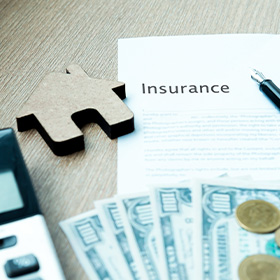Can a Seller Pay All Closing Costs in Florida?
September 20, 2024
The starting point of a real estate transaction comes after the seller approves a purchase offer. This doesn't mean that you can jump into the transaction right away. Sellers and buyers are supposed to hash out many important details during the initial negotiations, where they can ultimately find if they're compatible in regards to their requirements and personal ethics. One of the main topics of discussion during these negotiations is the allocation of closing costs. Most people know to get an estimate of the closing costs before putting their offer on the table since these fees will likely be part of the purchase budget.
One of the main topics of discussion during these negotiations is the allocation of closing costs. Most people know to get an estimate of the closing costs before putting their offer on the table since these fees will likely be part of the purchase budget.If you have questions about closing costs and the customs around Florida real estate transactions, we tell you all you need to know.
What Are Closing Costs?
Closing costs comprise all the fees attached to different parts of the real estate transaction, outside of the downpayment. Usually covering between 5% and 10% of the purchase price, they're paid upon completing the transaction, hence the name.Let's go over each of these fees to better understand closing costs and the importance of each aspect of the process. Keep in mind that the closing costs are defined by factors like the property's base price and location, so you won't necessarily find all these elements in your own real estate transaction.
- Home appraisal: In the appraisal, the property is evaluated to determine its exact value at the start of the transaction. This is done by a certified appraiser who tacks a fee to the service. Appraisals are essential to getting an accurate amount in the mortgage plan.
- Home inspection: Inspections are part of the initial review process to confirm all the statements in the contract. Specifically, the property needs to be inspected from top to bottom to ensure that its conditions match what's presented by the seller.
Among other things, the real estate agent will look for foundation problems, leaks, issues in the electric/plumbing system, pending renovations, and other areas in need of repair. Follow-up inspections will be added to the schedule if there are major issues to fix before the closing date. - Lender fees: These are the costs that result from issuing the mortgage loan, but they can also include other tasks like credit screenings. It all depends on the terms set by the lender before approval.
If there's an existing mortgage on the property, sellers must pay it in full before moving forward with the transaction. - Legal fees: Normally, both sellers and buyers have to cover their own legal fees since each of them has separate interests to protect. These fees will cover the representation and guidance of a real estate attorney. Since these services are needed for the duration of the transaction, legal fees are generally paid during the closing.
- Escrow account: Many of the funds to cover the closing costs are safeguarded in the escrow account until settlement. The fees attached to it correspond to the neutral third-party who is responsible for holding the fees in the meantime.
- Title search: These fees are issued by the title and escrow company that's been hired to conduct the title search.
Title searches are essential to discover instances of fraud or errors that could put the seller's ownership into question. On top of confirming the identity of the property's legal owner, a title search serves to reveal pending liens, hidden claims, and other encumbrances. - Title insurance and homeowner's insurance: The cost of title insurance is decided by the state and depends on the insurance plan and the property price.
Regarding homeowner's insurance, sellers are expected to continue paying for it until the transfer is complete. - Documentary stamp taxes: It goes to the county where the deed transfer is recorded. According to Florida's Department of Revenue, these fees amount to $.70 per $100 paid for the property. The rate applies to all counties except Miami-Dade.
- Property taxes: Similar to existing mortgage plans, this refers to pending taxes that the current homeowner needs to pay before transferring the property to someone else. They need to pay a specific amount depending on the amount of time they've owned the house throughout the taxable year.
- Recording fees: To complete the closing, the sale and transfer must be recorded to the county where the transaction took place. This includes all pertinent documents validating the transfer.
Who Pays Closing Costs in Florida?
 As with many other tasks in the real estate transaction, the customs relating to closing costs change across different counties. According to Bankrate, buyers may be expected to cover the closing costs in large counties like Miami-Dade, where there's a large population and the market is more competitive. In other parts of Florida, it's more common to split the costs between buyers and sellers.
As with many other tasks in the real estate transaction, the customs relating to closing costs change across different counties. According to Bankrate, buyers may be expected to cover the closing costs in large counties like Miami-Dade, where there's a large population and the market is more competitive. In other parts of Florida, it's more common to split the costs between buyers and sellers.Each transaction is unique in its own way, but there's virtually no chance of having the seller cover all the closing costs without any input from the buyer. The opposite is far more common and, in the most recurring scenario, buyers and sellers discuss all closing costs extensively with the assistance of a real estate agent to ensure that no one is saddled with something they can't afford.
When it comes to separating costs, the most common approach involves both parties covering their respective legal fees on top of the following distribution:
We Help You Keep Things in Order
A lot goes into protecting a client's best interests during a real estate transaction, and it can feel like an endless struggle if you're dealing with everything on your own. Just the prospect of crafting an accurate budget can be daunting without the guidance of a seasoned professional in the local market.Don't go into your real estate process without knowing what to expect! The staff at Key Title & Escrow will help you in any way you need, from guiding you through viable mortgage options to reviewing documents and assessing the requirements in your escrow agreement. Let us assist you so you can go about the process without having to deal with sudden expenses outside of your purchase budget. Just call (305) 235-4571 or toll-free at (800) 547-0006 to learn more about our services. If you want, you can also get in touch with us via the contact form on this page. Our specialists will be happy to answer all your questions!







